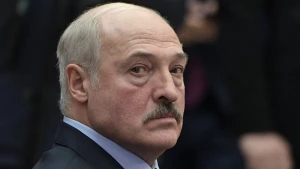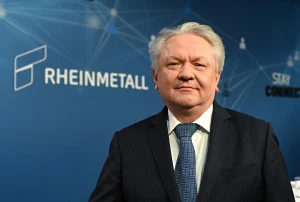
Kellogg's strategy: From ‘Expelling Russians from Ukraine’ to ‘Ukraine's rejection of NATO’
Donald Trump has announced General Keith Kellogg as his special envoy for Ukraine and Russia
Immediately after his appointment, the newly minted ‘special envoy for Ukraine and Russia’, General Keith Kellogg, gave a lengthy interview to Fox News, in which he stated that the ‘end game’ in the Russian-Ukrainian war would be ‘the expulsion of the Russians from Ukraine’, including Donbas and Crimea, which would lead to the fall of the Putin regime. General Keith Kellogg calls the war itself ‘genocide against the Ukrainian people’.
This would seem to be good news, if not for an analytical article by Bloomberg, which gives a rather negative description of General Kellogg. According to the agency, General Keith Kellogg advocated that US military assistance should depend on Kyiv's readiness to negotiate with Moscow.
In this context, Bloomberg also quotes Polish Prime Minister Donald Tusk as saying at a meeting with his colleagues from the Baltic States and Northern Europe that Europe should ‘be ready to replace at least some US support for Ukraine’. This position was previously voiced by the foreign ministers of Germany, Italy, France, Poland, Spain, and the UK during a recent meeting in Warsaw.
***
Now, a little bit about General Keith Kellogg and his work in Donald Trump's team.
On February 14, 2017, Keith Kellogg was appointed Acting National Security Advisor to the President of the United States, following the resignation of Michael Flynn.
On July 25, 2019, Kellogg took part in the infamous phone call between Donald Trump and Volodymyr Zelenskyy, the one that almost led to Trump's impeachment due to the US president's accusations of allegedly pressuring the Ukrainian president to reopen a corruption investigation against Joe Biden's son, Hunter, who previously worked for the Ukrainian energy company Burisma.
Kellogg is one of the leaders of the pro-Trump America First Policy Institute, an organization that develops national security policy proposals for the future Trump administration. Kellogg was also one of those who worked on Trump's ‘peace plan’. This document was released in June 2024. Relying on it, among other things, Trump made statements that he could end the war in a day.
The plan includes a ceasefire along the entire frontline and negotiations. If Ukraine refuses to do so, the US will stop providing aid to Kyiv; if Russia does so, support for Ukraine will be increased. ‘We tell the Ukrainians: you have to come to the negotiating table, and if you don't come to the negotiating table, the United States will stop supporting you. We are also telling Putin: you have to come to the negotiating table with Ukraine, and if you don't come to the negotiating table, we will give the Ukrainians everything they need to destroy you on the battlefield,’ Kellogg explained the concept.
Among the ideas Kellogg mentioned to force Putin to the negotiating table was to postpone the promise of Ukraine's NATO membership for a long time.
After Russia's November 21 strike on the city of Dnipro with a medium-range ballistic missile that could carry a nuclear warhead and Moscow's further hints of nuclear war, Kellogg called it psychological pressure and said Putin would not start such a war. He sees the Biden administration's permission for Ukraine to launch long-range missiles at Russia as a positive decision, as it ‘gives Trump more leverage in the negotiations.’
In general, some of his colleagues call Kellogg a pragmatist, suggesting that he considers Putin to be a rather unreliable partner in negotiations and that he will eventually admit that supporting Ukraine is in the interests of American national security.
About the author. Rostyslav Demchuk, journalist, expert on Euro-Atlantic issues
The editors do not always share the views expressed by the authors of the blogs.
- News













































